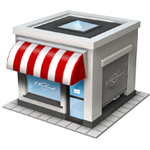People are always asking me if I know Tyler Brûlé
Semeado por / Sowed by: Bloom * Creative Network at 01:44 Born 1968, in Canada.
Born 1968, in Canada.
Canadian publisher and style guru.
His father, Paul Brule, was a Canadian football star and later went into business. His mother is an artist.
Tyler Brûlé attended more than ten school while his father went from one football team to another. His parents split up.
He says that he guessed that he was gay when he was aged seven, and that he was always obsessed with clothes. His father stopped talking to him when Tyler Brûlé told him about his sexual tendencies.
He studied journalism and political science in Canada and the United States.
He worked in television in Australia.
In 1989 he moved to Britain to take up a job with BBC Manchester's youth television department and worked on style stories as well as some hard news.
He worked as a freelance writer for Vanity Fair, Vogue, Stern, and other publications.
In 1993 he was sent by Sky magazine to Afghanistan with photographer Zed Nelson to do a story about Médecins Sans Frontières. While driving through Kabul they were machine-gunned and Tyler Brûlé was shot. They managed to escape and get to a hospital where it was found that his injuries were to his arms and would end losing the use of his left hand. He returned to England and continued to be hospitalised for some time.
He set up the style magazine Wallpaper* in 1996. He sold it to Time Inc. in 1997 for over £1 million but continued to oversee it. By 2001 it had a worldwide monthly circulation of 134402.
He also launched the sports magazine, Line, and Spruce, fashion related, but were not successful and lasted for 3 issues only.
In 2001 he was hired to design the "look and feel" of Swiss International Air Lines at their relaunch, after the collapse of Swissair. In the same year he became the youngest ever recipient of the British Society of Magazine Editors' Lifetime Achievement Award.
In May 2002, Brûlé left Wallpaper and concentrated on Winkmedia (now Winkreative), a design agency he founded in 1998.
In 2005, hehosted the TV media magazine The Desk on BBC Four. In 2006, he co-produced Counter Culture, a documentary series about cultural aspects of shopping, on the same channel.
He was a columnist for the Financial Times, The New York Times, and Neue Zürcher Zeitung am Sonntag. His "Fast Lane" column, which appeared in the weekend supplement of the Financial Times, covered his observations on travel, trends and high-end consumer goods gathered in the course of his travels during the week, which often seemed to involve visits to more than two continents.
In October 2006, he announced that he would create a new magazine, to be called MONOCLE, which launched February 15, 2007. In December 2006, he announced in "Fast Lane" that he would be taking a break from the column to work on projects. On February 14, 2007, the International Herald Tribune announced a "new weekly column on urbanism and global navigation" by Brûlé, starting on the 3rd of March.
It is said that Brûlé's father does not appear to have used any diacritical marks or accents on the family surname.
Bookmarkers: Buenos Aires, English, Magazines, Vida / Life, Vision









